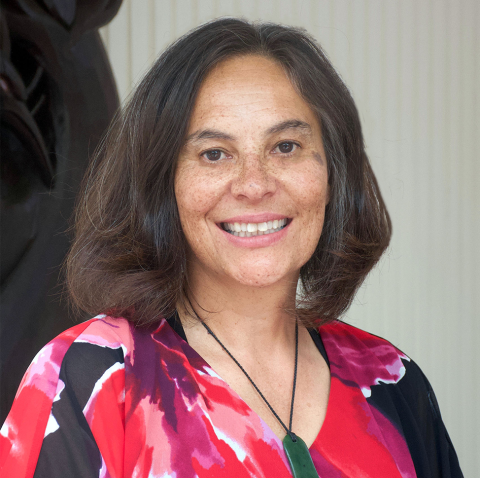
Whakapapa information is one type of data that is being shared and stored in a variety of places. NPM PhD scholarship recipient, Ella Newbold (Ngāti Tiipa, Ngāti Pāoa, Ngāti Tamaoho, Ngāti Porou) says because whakapapa data is a taonga, and by its very nature tapu, it is important that Māori have ownership and control of it.
Ella’s hapū Ngāti Tiipa has been on a data sovereignty mission over the past six years in a collective effort to protect and assert sovereignty over its hapū data. Through her PhD, Ella is looking at how tikanga and kawa can support Ngāti Tiipa to protect, access and use their data for the benefit of the hapū. She says that tikanga approaches to protecting Māori data are crucial amid technological developments and privacy concerns.
“It is essential to have tikanga and kawa around whakapapa data because it belongs to the collective. Whakapapa connects people to each other, to te taiao, te ao wairua, and across generations. Sometimes it can be sensitive, so it is important that hapū hold their own digital records and have control over how their whakapapa information is managed”, she says.
“At the heart of my Phd is the pātai - how we can be the best kaitiaki of our data in our own spaces? How do we be in good relations with each other and with our taonga data for the collective well-being of Ngāti Tiipa according to our tikanga and kawa?”
While there is a significant body of work on Indigenous and Māori data sovereignty, she says there is far less on iwi and hapū data sovereignty - a gap she wants to help fill. And while Ella is holding the pen for the PhD, she says the project is very much an intergenerational, collective effort and the support she has received from haukāinga and kaumātua has been crucial.
Prior to her PhD study, Ngāti Tiipa had already undertaken a Marsden Fund project, led by Tahu Kukutai, to reconstitute their tūpuna population from 1750 to 1900. Their hapū research group - Te Tira Rangahau o Ngāti Tiipa (see picture above) - travelled to the National Archives, Alexander Turnbull Library and other repositories to find and digitise records. They also obtained historical births, deaths and marriage certificates and data from historical censuses and land court records. “If it looked like, smelt like, sounded like Ngāti Tiipa, we collected it” says Ella.
Thousands of items have been stored in the Ngāti Tiipa digital pātaka housed on a server located in Aotearoa. The hapū wanted to ensure that the mana of the data remains in the jurisdiction of Aotearoa.
“This really forms the basis of Māori data sovereignty. People are unaware that their data is sitting in off-shore pātaka. The recent development of the world-first data storage infrastructure solution built by iwi Māori for iwi Māori is an exciting development for iwi and hapū, says Ella. https://waateanews.com/2024/06/04/world-first-data-storage-infrastructure-solution-built-by-iwi-maori-for-iwi-maori/
“We wanted to protect whānau and their data so that it is not blasted around the internet. In this digital realm, anything and everything can go out into the world. So, it is important to Ngāti Tiipa to be the best kaitiaki of our whakapapa data and to lay some tikanga and kawa around that”.
Ella’s PhD is part of a multi-year research programme called ‘Tikanga in Technology’ funded by an MBIE Endeavour grant. One of the tools that she is using for her PhD is the Māori Data Privacy Framework created by the TiNT team based at the University of Waikato. Based on four tikanga principles - mana, tapu, mauri, and hau - the framework provides a holistic approach to privacy that includes collective privacy.
“When we’re talking about whakapapa information, collective privacy is just as important, if not more important, than individual privacy so we need approaches that can address that” says Ella.
Ella would like to see other hapū go on a similar journey to protect their whakapapa information. “Whakapapa is the past, present and future. It is something that needs to be handled with the utmost care in digital spaces. For other hapū it is not just a one-size fits all. These are big questions and the impact of relinquishing your data sovereignty to others can be huge.”